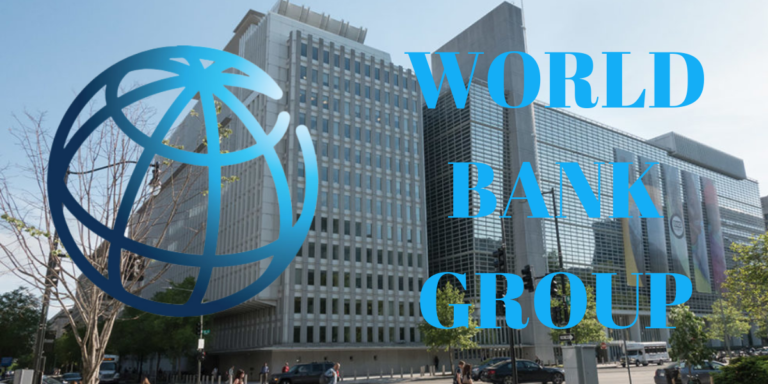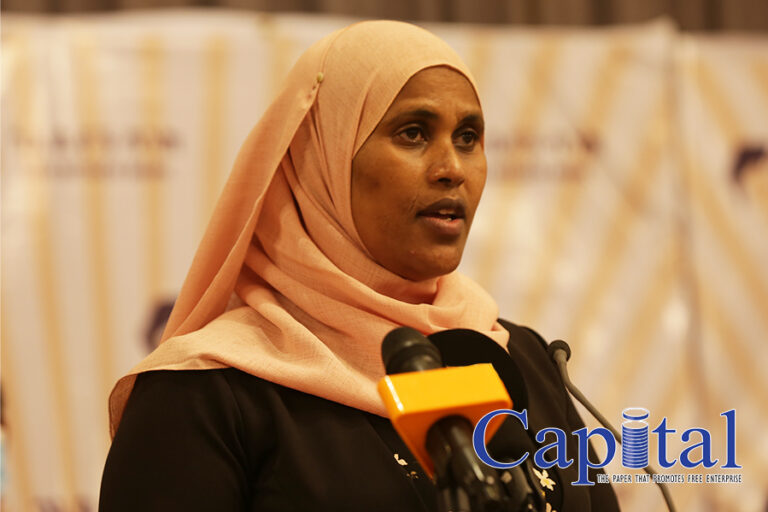Cost of school supplies touches sky highs as preparation for the new academic year meets most families in tough times.
Shortage of foreign currency, lack of input materials and other factors has in recent times created the increased prices of school supplies.
The market for exercise books and education materials has steadily been on the rise for the past eight years in the stationeries across the country.
There are two kinds of exercise books in the market- the laminated and the non-laminated, with more buyers preferring the laminated ones because of durability, sellers explain. “The price of exercise book is increasing significantly within a short time,” said one seller that Capital spoke to at an Exhibition center recently.
“A few years back, the wholesale price of a single exercise book used to be around 10 birr, while now that narrative has changed to up to 80 birr. Distribution and supply of education materials is limited in the market resulting in the inflated pricing,” the seller further elaborated.
The high cost was created by the shortage of exercise book that came following foreign currency shortages. “It is a little bit harder to find foreign currency from the banks,” said sources from one of the private paper manufacturing companies indicating that some manufacturers are cutting their production and operating below their capacity whilst looking up to government for support.
As Abeba Tamene, head of public relations and communication at the Ministry of Industry said, “The Ministry doesn’t have such in-depth information on the situation. However, the ministry will try to evaluate the case.”
Fortunately, parents do not have to buy text books as the government provides for those who attend public schools. The private school students do buy books for only a little above the price that the schools buy from the government, adding the transportation cost they incur.
Same as exercise books, the price for other school items is higher than ever. Other school items that are in high demand during the holidays are school bags and uniforms. School bags sell for 1000 to 6000 birr at the exhibition.
Another market associated with the coming academic year is the uniform market.
“Our markets boom in between the months of July and September, and we are currently in preparation for this,” one trader explained, signaling that prices in the uniform market still remain high.
School supplies soar in pricing as New Year dawns
Dashen finances new region, inks MOU with Gambella admin
Dashen Bank, one of the biggest and oldest private banks, donates five million birr for the newly established South West Ethiopia region.
According to Asfaw Alemu, President of Dashen, his bank provided its contribution to support the developmental projects of the new region.
“Beyond contributing to expand access to finance in the region, we want to be allies with the people of the region in terms of contribution for developmental activities,” Asfaw said at the handing over ceremony held in Bonga, capital of South West Ethiopia region.
In related developments, Dashen Bank inked a memorandum of understanding (MOU) with Gambella regional administration.
As per the bank’s disclosure, it will work to boost business activities in the region as well as support community based projects.
As per the cooperation, Dashen will provide 25 million birr to micro finance institution (MFI) in Gambella and the MFI will disburse the finance for micro and small enterprises at minimal interest rates.
Besides that, it has been stated that the agreement will allow for positive outcomes on the effort that the regional government is working on, in particular, agriculture, housing developments and other economic and social services in the region.
At the signing ceremony held at Gambella city last week, Dashen promised to pledge one million birr to support 100 university students who came from the Gambella region.
At the signing ceremony, Mulugeta Alebachew, Chief Strategy and Innovation Officer at Dashen, said that the bank will accelerate its support to heighten the effort of the regional administration, which works to improve regional development.
World Bank affirms commitment to Ethiopia
IFC buys $160 mln stake in Safaricom Ethiopia
The World Bank Group reassures its commitment to support Ethiopia for the work of betterment of its citizens.
Despite several global partners and international institutions retreating from providing their support due to the conflict in northern Ethiopia, the World Bank has been providing some sort of support for developmental projects in the country; even though some project have faced postponement.
For instance, in the ended budget year, most of the central government inflow loans came from World Bank, while the total new flow was reduced for the second consecutive year unlike the experience in the past.
However, there are some factors that led to the reduction, like the government’s decision to cut commercial loans and approve credits for public enterprises that are on their final stage.
However in a statement that the World Bank issued on September 8, it disclosed that it remains committed to continuing its partnership with Ethiopia for the benefit of all Ethiopians.
It said that multiple conflicts combined with historic drought and other shocks have severely impacted millions of Ethiopians, jeopardizing the economic and social development progress the country has achieved in recent years.
“Consistent with our strategy to remain engaged in situations of conflict and fragility and to support greater resilience of Ethiopia’s people, the World Bank Group remains committed to continuing its partnership with Ethiopia for the benefit of all Ethiopians,” it said.
“Accordingly, the World Bank Group is supporting Ethiopia to address its citizen’s demands for basic human services such as education, food security, health, clean water, livelihood support, women empowerment, social and environmental protection across the country,” the document reads, adding, “Over the past decade, our interventions have helped Ethiopia to make significant progress in key human development indicators: primary school enrollments have quadrupled, child mortality has been cut in half, and the number of people with access to clean water has more than doubled.”
It said that as a development focused organization, the World Bank does not have the mandate to get involved in the internal governance issues of its member states.
Recently on its bulletin to review the country’s debt, the Ministry of Finance disclosed that the total external public sector debt disbursement over the past twelve months (July 1, 2021 – June 30, 2022) was USD 1.087 billion, with approximately 73 percent going to central government projects from various creditors, the majority of which came from International Development Association that means the World Bank, and the remaining 27 percent going to SOEs primarily to Ethiopian Airlines.
In a similar development Safaricom and its partners in the Ethiopian venture will see their combined stake drop by up to 15.5 percent after the International Finance Corporation (IFC) the investment arm of the World Bank announced a plan to purchase $160 million worth of shares in the subsidiary.
Safaricom is the major shareholder in the Ethiopia venture with a stake of 55.7 percent and the entry of IFC as a shareholder could see its ownership drop to below the 50 percent mark, reducing its exposure in the populous nation.
Vodacom Group holds a 6.19 percent share of the business. Sumitomo Corporation and British International Investment (formerly CDC Group) control stakes of 27.2 percent and 10.9 percent respectively in Safaricom Telecommunication Ethiopia Plc (STE)which is the operating arm of the venture.
The partners together paid $850 million towards the license fee according to Business Daily Africa.
Local products to supersede over import
Ministry of Urban and Infrastructure Development develops legal framework
The Ministry of Urban and Infrastructure Development underscores that based on its mandate, it is working rigorously to prepare a legal framework to restrict import materials that can be produced locally.
As the Ministry tailored its 18.26 billion birr budget for the 2022/23 budget year, Chaltu Sani, Minister of Urban and Infrastructure Development stated, “The construction sector is in high challenging situations, especially with price hikes and project management and these have had a ripple effect on us.””
“In this new budget year, we are planning on new trends by reflecting on our last year’s performance,” said the Minister indicating that the ministry is focusing mainly on two issues, including properly facilitating project management and finding input materials.
“Based on our mandate through proclamation 1263/2021, we are preparing a legal framework to replace imported inputs that can locally be sourced in order to resolve the challenges related with input shortage,” said Chaltu, adding, “We are also working to support and strengthen the capacity of local producers.”
As experts opine, the prices of construction materials are heaping up from day to day. To this end, government has been taking a number of steps to improve the supply chain and increase the price of cement which is the main input for the construction sector.
Whilst speaking about the performance of the last budget year, the minister highlighted that rebuilding of the war affected areas were successful stories despite the interruption of construction due to certain reasons.
As she indicated, among the major projects the ministry had for the year, greenery projects were the main to spread in many cities of the country besides other old and usual construction projects.
On the flip side, the interruption of project completion, and unexpected time and cost overruns of housing and road construction projects, led to more than 768 federal government projects to be paused due to the price escalation of construction inputs during the previous ten months of the budget year.
Furthermore, the war in northern Ethiopia was cited as a critical reason for the interruption and delay of major federal road projects. Additionally, lack of clear directives for compensation and resettlement, price escalation, and absence of efficient contractors during the tender process to award project constructions, were mentioned as critical issues.
Construction delays more often than not occur due to the escalation in material prices, which contractors also underline as one of the major challenges they face in their projects.
Most of the stakeholders claim that there are few control measures taken by the government on the market, and they pin this as the main problem of the price spike.
The illegal increasing price of cement in the open market for the past several months has sparked challenges in the construction industry while cement producers on the other hand are tackling a long list of challenges including, unfavorable supply-demand balance, higher cement prices, escalating production costs, low utilization rates, social unrest, and a lack of foreign currency. With the new budget at hand, the Ministry is working towards providing a lasting solution for the development of the country, in all fronts.





